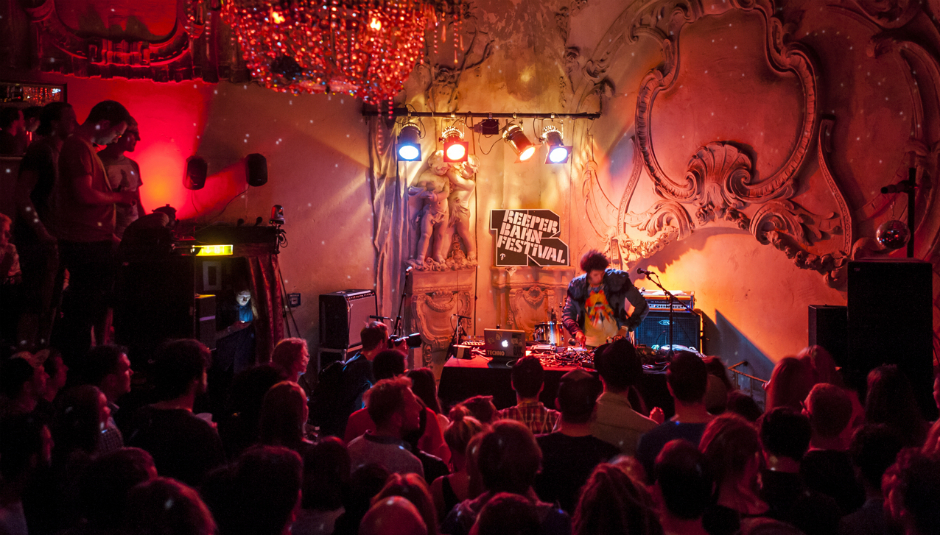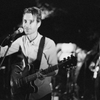What happens if you take a classical event and drop in into the middle of a rock festival? What happens if you take a rock critic and drop him into a classical event? Tonight’s show is a culture clash; cellos and choirs meeting a festival more used to cutting edge indie rock and electronica; the festival audience of Hamburg hipsters, in converse and denim jackets, is eyeing up the classical crowd in their suits and heels. No-one is sure if they should be talking. No-one is sure if they should be standing up or taking a seat. The bar staff are trying to be extremely quiet, descending into fits of giggles under their breath as they attempt to scoop ice into glasses as silently as possible. Everyone is learning a lot about each other.
For the classical crowd, the ones drawn perhaps by Arash Safaian’s ÜberBach project, reinterpreting Bach pieces for rippling piano and vibraphone alongside the strings, this is a lesson in festival etiquette. There might be some talking. There might be the odd pair of converse. The sense of reverence that accompanies a traditional Classical performance is dispelled by the brutalist surroundings, and the radical idea that it’s okay to get drunk.
For the hipper, younger festival crowd and accompanying less hip, less young rock critic (hello!) it’s an emersion into a different musical atmosphere, of subtlety, of immersion, and of trying to work out what the difference between violas and violins is.
I’ve never listened to classical music. Not really. Obviously you know it because the great works seep into your understanding on a very basic level. You assimilate classical music the same way you assimilate the sound of your parents’ voices: it’s just always there. Mozart, Bach, and Beethoven are part of our basic vocabulary. But I’d never really investigated, I’ve never been to the Proms or to see a symphony. The only classical record I own is the Star Wars soundtrack.
I suspect those of us less invested in the classical world got more out of tonight than the symphony buffs. For them this is a novelty relocation. For us this is sitting in our world and peeking into another. A way in.
And it’s a wonderful experience. Tamar Halperin’s delicate reinterpretations of Erik Satie compositions is wonderful, though the appearance midway of a piece of music I actually recognise, (turns out it’s ‘Gymnopédie No.1’, classical fans) leads to a moment of confusion when I realise you’re not supposed to cheer in the same way you would when Radiohead start ‘Karma Police’.
Safaian’s Bach interpretations, played by a however-many-piece orchestra (it was lots?) of strings, piano and vibraphone is lovely; sometimes a fierce tumble of sound, sometimes an elegant floating. Some of the Bach purists seem to wrinkle their noses at points, but I don’t know any better.
Best of all though, is Sven Helbig's performance of his I Eat The Sun And Drink The Rain, a dark, immersive suit of songs played out through voices and subtle electronica. The piece is staggeringly beautiful, a transformative breeze made from human voices that combine with the accompanying, achingly slow, grainy footage of assorted gothica to give a sense of slow, melancholic planet death. Listening to Helbig's work you can hear the turn of the universe. It’s astonishing, and has far more in common with the atmospheric post-rock of Godspeed You! Black Emperor, or the mesmerising elegance of Sigur Ros than with Beethoven’s Fifth.
The experiment is a success and tonight is an important lesson in expanding your horizons, (though in the case of Helbig that horizon is probably the wave that is going to wipe out humanity). What exactly have we learned? That music is music? That you can weep openly at rippling piano while wearing jeans and a t-shirt? That you can watch a symphony stood at the bar with a beer? I may still not know what a viola and violin do differently, but I know now that anything can be brought into your comfort zone and that labels can be unhelpful and off-putting.






















